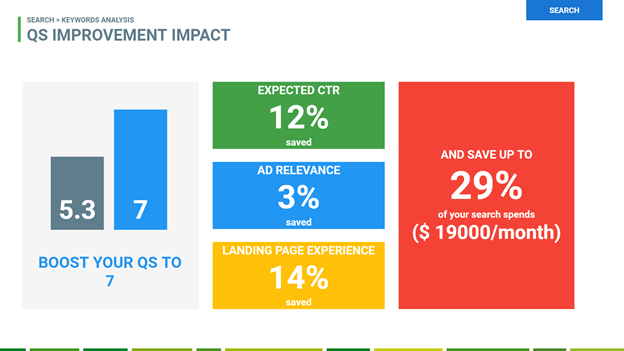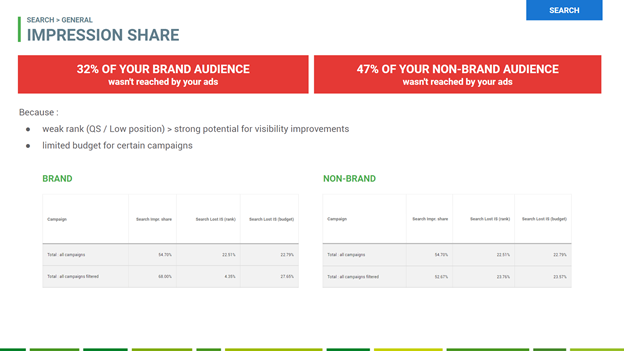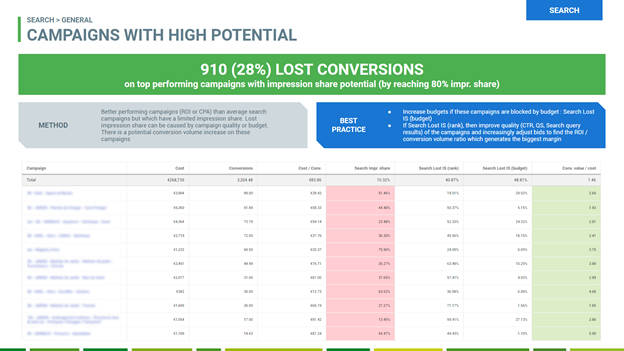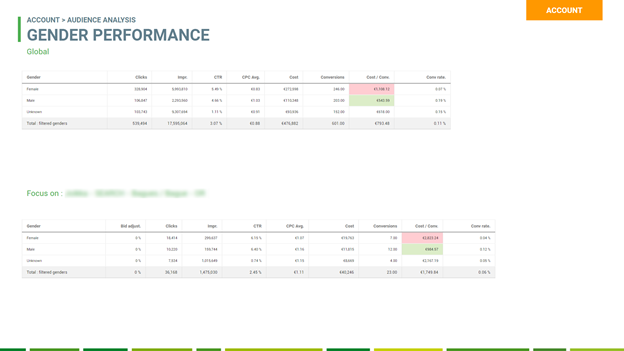30-second summary:
- Every year Google adds more automation and complexity to their ad products.
- While it can help day to day campaign management, it comes at the price of readability and control over your campaigns.
- Marketers are constantly challenged to find effective ways to maintain control over their campaigns and strategies.
- To succeed in 2021, you need to integrate more data, retain control over automatic Google optimization, fight against the increased competition, yet you will not have more time for this.
- Google Ads audit provider, SEISO audited over 8000 accounts and observed that marketers, on average, can save up to 32 percentage on their spend with no impact on performance by trimming the right branches.
- SEISO’s Martin Romerio looks at the five new key actions you should focus on for successful Google Ads campaigns.
As PPC business becomes more mature, it is harder to find new opportunities for your SEM campaigns’ management, keeping on top of the latest trends that will help you reach a better ROAS. Every year Google adds more automation and complexity to ad products like Google Ads. While it can help day to day campaign management, it comes at the price of readability and control over your campaigns.
As a marketer, you need to maintain control over your campaigns and strategies. Google’s optimizations are not always in your best interest nor do they know the context of your brand. One solution could be to use a campaign optimization tool like SEISO. It helps you to get insights into your campaigns while remaining in charge of the final decision.
To succeed in 2021, you must be able to do new things: integrate more data, retain control over automatic Google optimization, fight against the increased competition, yet you will not have more time for this. Let’s look at the five new key actions you should focus on:
Content created in partnership with SEISO.
1. SKAGs out, Intent in
Google favors consistency within campaigns. The more similar performance your keywords have, the better the campaign will perform overall. This has been the rationale behind the infamous single keyword ad groups strategy (SKAGs) that was popular a few years back. Truth be told, it was an unmanageable mess. Luckily, lately, Google introduced a few updates that made SKAGs irrelevant: match type update, close variants.
So if consistency is key but SKAGs is overkill, what are we to do? As is often the case in marketing, we need to work with common sense. In this situation, the user’s intent should be the North Star around which you group your keywords.
Internet users who searched for the name of your brand are more likely to convert and buy once on your site. First, all search terms relating to your brand should be grouped together as they bring the best ROAS. Second, terms mentioning keywords such as “price” or “discount” are strong signals of buy intent, you should bundle them together. While phrases including “specifications”, “size” or “warranty” are important for you to bid on, your CTR and CR will be lower, thus you should have a reduced bid for those. And so on with a view to improving results, you must visualize and quantify the areas in which you can improve things and find new clients. The trick is to keep the structure of your account separate.
This can be a time-consuming and confusing process. An easy way to start is to use insight tools such as the SEISO Google Ads analyzer report to assist you in understanding your current campaigns.
2. Declutter up your campaign, no more wasted ad spend
With dozens of campaigns, hundreds of ad copies, and tens of thousands of keywords, keeping a close eye on each of them can be overwhelming. Yet it is key to your success. Underperforming spend represents your Google Ads investment that has a low-quality score or isn’t converting enough. As time goes on, keeping a handle on things gets more time consuming as you are adding news terms and copies every day. After a few years, it can become unmanageable.

To reduce the wasted spend you’ll have to drill down two reports: the Quality Score and the Search Query Report to analyze the search terms that trigger your ads.
You can also save time and quantify your potential savings with the free SEISO cleaning tool. Our observation with over 8000 accounts audited monthly is that marketers, on average, can save up to 32 percentage of their spend with no impact on performance by trimming the right branches.
3. Double down on your strengths
Often advertisers think that to increase their sales you have to buy new keywords.
While it is true, it is at least as important to make sure you have the maximum market share on the keywords for which you are the most profitable (beyond branded traffic of course).
The best way to make sure you don’t lose any opportunity, you need to monitor the ‘Impression Share’ you have on Google Ads SERPs.

Lost impressions represent missed opportunities on searches related to your keywords that you choose to bid on. You need to focus on the top 10 campaigns and check for the market shares of your competitors and monitor closely when you are not shown.
On average 94 percentage of SEISO users are seeing that they are not always present on their top search terms SERP when they run their 1st audit.

4. Make it shine
Copy and visuals are playing an increasingly important role in campaigns. As a user is exposed to more than 6000 ads daily, you need to stand out to get a chance to attract its attention.
The quality of the creation weighs up to 80 percentage in the performance of Facebook Ads campaigns, we observe a similar trend on Google Ads.
And the importance of the visual is also increasing on the Google Ads network.
The secret to optimizing your ads and creatives is to give in to the power of statistics. You can never know for sure which creative will work the best, but you can now easily test your best guesses. The magic number is between three and 5. Always test at least three and no more than five ads in an ad group.
Think about the benchmark: SEISO will also give you recommendations for priority areas to improve: optimization of ads, use of ad extensions.
5. Spend smarter, not more
More and more, Google is catching up with Facebook on the user-centric approach. Your spend needs to be allocated not only on keywords or placement levels but also take into account the user profiles.
Data is gathered from users’ declarative information, when and where they are online, as well as Google Analytics shared data and inferred data from previous search queries (that is, if a user searches for baseball game score, he is a sports enthusiast). To take user profiles into consideration, make bid adjustments to your most valuable audiences and criteria.
It is key to integrate a dimension for audiences for your campaigns: socio-demographics, time of the day, day of the week, geography, devices, and more.

Starting the year with good resolutions is great, but it is only the first step, the key to having a state of the art Google Ads account all year round is to maintain a steady job.
There is much more to discover in the SEISO analysis report, including expert tips and Google Ads best practices, account activity analysis, budget management recommendations, and more than 75 criteria sifted.
Are your Google Ads Campaigns optimized?
To test SEISO for free TODAY, click here.
The post Google Ads new features: Five tips for your Google Ads campaigns appeared first on Search Engine Watch.



